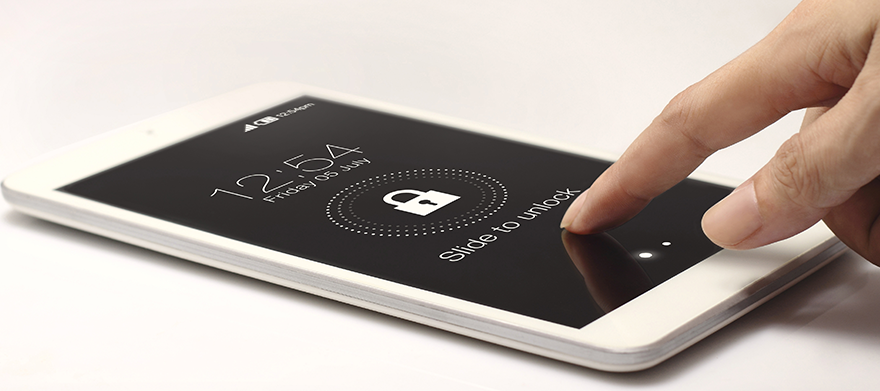Due to the current climate, we're more and more reliant on the internet to keep us connected to the outside world. It's allowed us to communicate using video calling within a few clicks, helped us locate and purchase those essential goods (as well as a few other bits we don't really need but want anyway!), binge watch series and movies and a vast array of other things.
As we use it more, ensuring your personal information is secure and doesn't get into the wrong hands, has never been so important.
Here's our list on how to protect your identity online:
- Always keep your data security software up to date
Those software update notifications may be annoying, but they’re there to give you a heads up. If your phone or computer is infected with malicious software, other safeguards won’t be much help as you’ve already given the criminals the key to all your online actions (and transactions). So, it’s worth making sure that your security software and operating system are both fully up to date. You’ll find useful tools and software at download.cnet.com.
- Monitor your credit score and finance apps
Always keep tabs on your finances to get a head start on fraudsters. Look out for new credit cards, loans or transactions on your accounts that you’re not aware of. If you do find anything suspicious, take immediate steps to have these transactions stopped and investigated. It’s also worth checking if there’s any false info on your credit reports, including your National Insurance number, address, name or employer’s name.
- Check your privacy settings on social media
Have a look at the personal information on your social media accounts. If you’re setting up a profile for the first time, don’t include any info that you wouldn’t want shared beyond your friends. Take a look at your social media privacy settings too.
With Facebook, the best way to make your profile more secure is to change all your post settings to ‘Friends only’. That way, you know who’s able to see your personal info on your profile. Facebook often make changes to these settings, so take a moment every now and then to make sure your profile’s as secure as you’d like it to be.
- Use strong passwords
Weak passwords are an identity thief’s dream, especially if you use the same password for every account. Once the thief knows your password, they can log your financial accounts and wreak havoc. If you want to test the strength of your password, try Ask the Geek’s password meter, which hides characters as you type.
Ideally, your passwords should be at least 10 characters long, including upper and lower case letters, numbers and symbols, and be totally unrelated to your personal info. Password managers like LastPass, Dashlane and Keeper Security are great for storing all your passwords safely in a single handy program, while two-factor authentication (2FA) adds an extra layer of security each time you log in.
- Only buy from reputable websites
If you don’t know the reputation of a company that you want to purchase from, it’s a good idea to do your homework. How are they reviewed by other users? What’s their Trustpilot score? Above all, look for ‘HTTPS’ at the front of the website’s URL if it’s asking for personal or financial info – it means you’re on a secure connection, away from potential prying eyes.
- Learn to spot scams
Some phishing scams are easy to identify, but others often look legit. Be careful when clicking on links. For example, if an email says it’s from your bank, has all the right logos and knows you’re name, it could be from your bank – but it might not be. Simply find the site yourself via a search engine. That way, you’ll know for sure you’re on the right page and not a mocked-up fake.
- Be careful using public WiFi
Free WiFi might be a nice perk when you’re in a shopping centre or café, but always think twice before joining an unsecure network. Virtual Private Networks (VPNs) are tools that help you shield yourself from snoopers and opportunists using public WiFi.
If you have any other suggestions, please let us know below.



